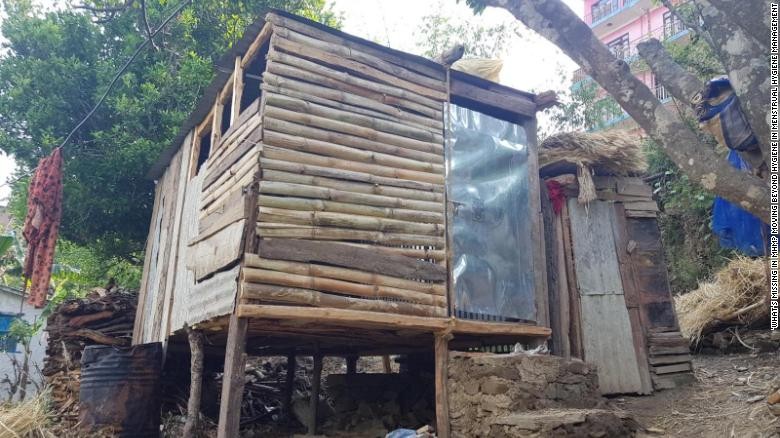
Girls are forced to stay on a small, poorly-constructed hut during their period.
In the modern setting where information is easily accessible, most of us probably know that menstruation is not a big deal. That is a normal part of a woman's life. However, this is not the case in a region of mid-Western Nepal, where a centuries-old Hindu belief that menstruation is a sign of filth is still highly practiced.
Deep in the Himalayas lies a district where many families are still practicing "Chhaupadi". The said custom involves restricting a woman's activity and confining her on a small "menstruation hut" during her menstruation period.
The custom has been criminalized since 2018, and yet according to a study published on Monday, about eight out of 10 girls in the region were still practicing it.
The Distressful and Disempowering Tradition
About 400 teenage girls in the Karnali province of mid-Western Nepal were surveyed by the research conducted by the University of Bath and Center for Research on Environmental Health and Population Activities (CREHPA), a local non-profit organization.
The study found out that although girls from urban settings are less likely to practice Chhaupadi, around 66% of the girls from the wealthier cluster still did.
The "menstruation hut" are usually small, poorly-constructed cottages that have small doors and no windows, resulting in a poor ventilation system. In addition to that, there are some cases of teenagers forcing to sleep with the animals instead.
Jennifer Thomson, one of the authors of the study, said in a press release that the girls felt "stressed, anxious and disempowered" whenever they practice the tradition.
Although some girls can practice proper menstrual hygiene during their stay, multiple threats like animal attack, snake bites or being harassed by an outsider are causing psychological stress to them even if they have not experienced those yet, Thomson also added.
But aside from the physiological and psychological consequence of staying in those ramshackle huts, girls also suffered from social isolation. Multiple surveyees have reported that they were not even allowed to eat normal foods nor cook their own during while on period.
A disrespected tradition?
Under the law passed in 2017, whoever forced a woman in her period into isolation will be enjailed up to three months or fined for up to $30. Although officials have claimed that the practice was "largely eradicated", there were still multiple deaths reported this year.
In January this year, a 17-year old girl from Purbichauki village in western Nepal's Doti district was found dead inside her hut after she got suffocated while trying to stay warm on a freezing night.
Since it was criminalized, rural residents have complained against the government for "disrespecting their tradition". And despite the law, the new study claimed that the tradition was passed down to generation, mostly by the "elderly within their family and community" like mothers and senior women.
Renu Sharma, president of local non-profit The Women's Foundation, has suspected that the new study's findings might have actually underestimated the number. She also added that even school teachers, health workers, and local leaders from non-rural settings still sleep in their isolation huts
Aside from public disobedience, the study has pointed out that the problem also lies on the "loose enforcement" of the law. Although menstrual hygiene policies were proposed, it is unclear which governing body is responsible for its execution.
The study also noted that many organizations focused on the negative effect of Chhaupadi on women's well-being, and they suggest to widen the scope of activism because the greater emphasis on the social issues that fueled these practices is much needed.
Changing law is important, but there is more than that because this is about changing the practices that have been passed down from generations to generations, Thomson also said.
ALSO READ: Top Five Big Adventures in Nepal
© 2024 NatureWorldNews.com All rights reserved. Do not reproduce without permission.



![Climate Change is Reducing Dust Levels Worldwide as Arctic Temperature Warms [Study]](https://1471793142.rsc.cdn77.org/data/thumbs/full/70320/280/157/50/40/climate-change-is-reducing-dust-levels-worldwide-as-arctic-temperature-warms-study.jpg)

